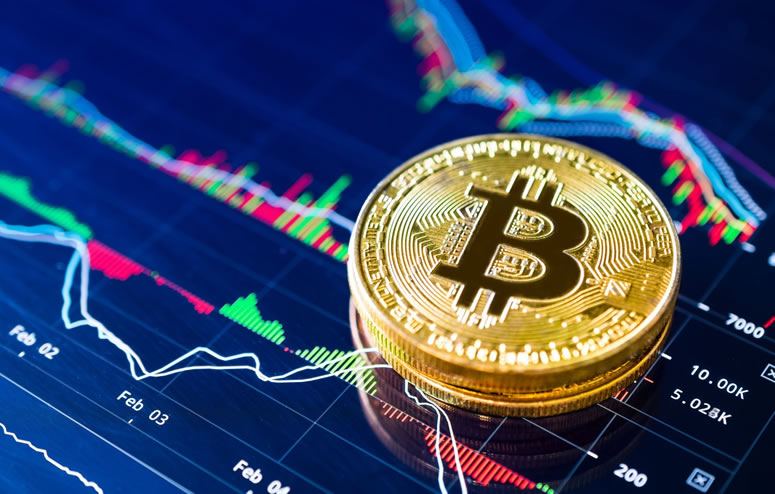Bitcoin ETF Approval Could Lead To A Sharp Drop In Prices
Converting the Grayscale Bitcoin Trust to an ETF would unlock the sale of up to $18 billion in Bitcoin.

The introduction of the Bitcoin Exchange-Traded Fund (ETF) will make the asset more accessible to individual investors and mutual funds. Also, unlike a Bitcoin Futures-based ETF, a spot-based ETF actually involves buying BTC. So the confirmation of the first Bitcoin ETF will be a bullish event? Not really.
The GBTC "Decline" Is Still In The Binary
Over the years, the United States Securities and Exchange Commission (SEC) has rejected all applicants for Bitcoin ETFs, and the latest rejection has been given to VanEck Bitcoin Trust on March 10, 2023. The SEC concluded that the offer lacked "adequate regulatory compliance in a well-regulated market involving the bitcoin space." Regulators are reluctant to release what many believe is a better and more transparent Bitcoin product.
Investors are now wondering if the latest offer from ARK Invest and BlackRock to launch a spot Bitcoin ETF could be a solution for Greyscale's Bitcoin Trust (GBTC), an investment vehicle in exchange-traded stocks. Interestingly, the GBTC "premium" reached its best level during the month BlackRock announced its ETF filing.
And while the potential support of the Bitcoin ETF spot may begin to show bullish, the consequences for the price of BTC may be negative, even in the short term.
What is an ETF? First, an ETF is a type of security that holds a variety of investments, such as stocks, stocks, and bonds. An ETF can be similar to a mutual fund because the issuer invests and manages the assets contributed. The best-known example of this tool is the SPDR S&P 500 ETF Trust, which tracks the S&P 500 index. State Street manages $436 billion in mutual funds. Buying an ETF gives the investor direct access to the contents of the fund, which has different tax consequences than holding futures contracts or leveraged positions. Although Bitcoin spot ETFs remain in demand, similar products have existed for decades for bonds, global currencies, gold, Chinese stocks, real estate and oil. A 30% reduction in GBTC may be justified
The Grayscale Bitcoin Trust - an investment fund with $18.4 billion in assets under management - is currently trading at a -30% discount to its Bitcoin holdings. The difference between 626,778 Bitcoins in market value and GBTC shares traded in constant exchange reached a small -49% in December 2022. Therefore, this reduction may be justified because the application does not have the tools to allow judgment. Greyscale's GBTC is the undisputed leader in the cryptocurrency market, although it is classified as a closed-end fund, which means that the number of available shares is limited. GBTC shares are not created for free and there is no buyback plan. Due to this inefficiency, there is a huge difference in the price of real Bitcoin. In contrast, ETFs give the investor the right to issue and redeem shares, ensuring that premiums or discounts are usually low.
GBTC charges an annual processing fee of 2%; therefore, the reduction may be accepted because the SEC continues to reject requests and requests from all fund managers. On the other hand, ETFs generally trade in equity, unlike GBTC. For example, the Target Bitcoin ETF (BTCC.U) had a net worth of $5.63 per share on June 27, and shares closed at $5.65 on the Toronto Stock Exchange. Similarly, the underlying price of the US derivatives ProShares Bitcoin Strategy ETF was $16.89 on June 28, while its shares were trading at $16.89.
The Spot Bitcoin ETF Can Support BTC In The Beginning
Basically, mutual funds are less attractive than ETFs, and Grayscale has done little to mitigate the impact on current GBTC investors. However, market sentiment increased slightly when the world's largest asset manager, BlackRock, requested the launch of a spot price Bitcoin ETF.
Stock price reductions and content will eventually continue to zero after the backlash and the possibility of a lawsuit arising if the SEC gives asset manager Grayscale permission to convert its GBTC Trust into a real Bitcoin ETF. In this situation, there is a good chance that an increase in the amount of BTC can enter the market, as investors will finally be able to exit their position at par.
The only question is: how much of that $18 billion will go into other Bitcoin-related applications or sell it on exchanges? Either way, there is a good chance that one-off Bitcoin ETF favors will create significant selling pressure from Grayscale's GBTC conversion, as BTC is locked for three to eight years to re-enter the market.





